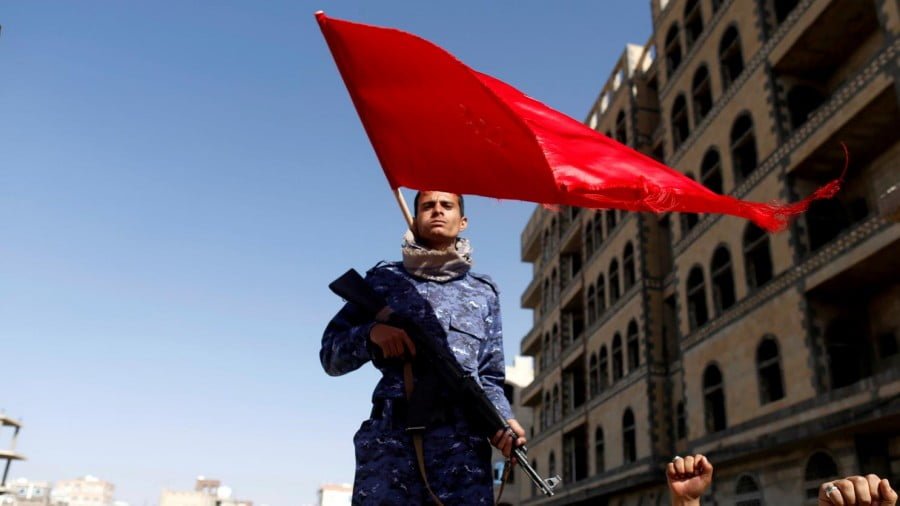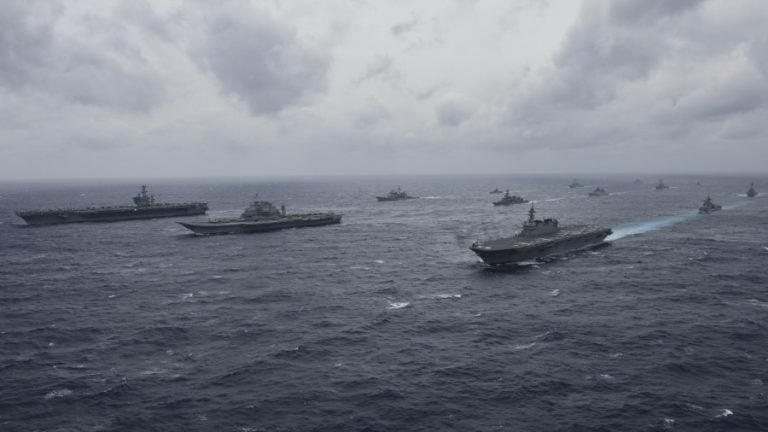How Washington Destroyed Yemen
Last week more than two dozen Obama administration alumni released a letter through the non-profit National Security Action organization calling on the Trump administration to pull all U.S. support to the Saudi-led coalition. The letter was published days after the Defense Department announced the severance of Washington’s mid-air refueling operations on behalf of Saudi Arabia and the United Arab Emirates, a move critics of U.S. policy on the left and the right have been advocating for years.
The content of the letter—signatories include former Deputy Secretary of State Tony Blinken, former U.S. Ambassador to the UN Samantha Power, former CIA Director John Brennan, and former Deputy National Security Adviser Ben Rhodes—could not have come at a better time. Yemen, the poorest nation in the Arab world even before the civil war broke out, is on the precipice of the largest famine the world has seen in decades. Fourteen million people are on the verge of starvation, a number that will only climb if the intense battles ongoing in Hodeida damage the city’s port in the Red Sea coast. Three and a half years of U.S. military assistance to Riyadh and Abu Dhabi have amounted to a humanitarian debacle with no strategic objective or endgame. Al Qaeda in the Arabian Peninsula, the one organization in Yemen that has attempted an attack on the U.S. homeland, has exploited the conflict in a variety of ways; the group has stolen hundreds of millions of dollars from bank vaults and recruiting more fighters into its rank-and-file.
The recommendation from the former Obama administration officials is the right one: “[T]he time has come for us to end our support for and involvement in this brutal conflict.” However, not once do they acknowledge how unjustifiable and constitutionally dubious U.S. involvement in Yemen’s civil war was in the first place. Outside of admitting their failure to bring the war to a resolution, the authors of the letter also neglect to take primary responsibility for setting America on a course that Washington is finally beginning to reevaluate.
U.S. refueling of Saudi aircraft, the provision of intelligence support to Saudi military planners, and full diplomatic backing of Riyadh in international fora was a policy established, executed, and funded by the Obama administration . Some of the same people now pleading for a U.S. withdrawal were defending American involvement when serving in the Obama administration.
Take Samantha Power, who has been quite vocal against Saudi Arabia for errant bombings of Yemeni civilians and the humanitarian disaster looming over the country. On November 8, she tweeted that the “Trump admin calls for ceasefire in Yemen are not enough; fighting getting worse in Hodeidah right now.” It would be a highly significant statement of moral clarity if it weren’t for the fact that Power and her team at the United Nations did little of anything to tame Saudi behavior outside of strongly-worded press releases.
In 2015, when the Netherlands was attempting to pass a resolution that would have assigned an independent, impartial, on-the-ground team of UN war-crimes investigators to the conflict, the U.S. delegation in New York day on the sidelines while Riyadh derailed the effort. Rather than establishing a fact-finding committee, Washington backed the Saudi position and called for a consensus resolution. The Netherlands watered down their draft before withdrawn it entirely in favor of a Saudi-supported inquiry.
Ben Rhodes, too, has been strongly denouncing Saudi Arabia’s war strategy in Yemen. In September, the former deputy national security adviser condemned the Trump administration for “ outsourcing” Washington’s Yemen policy to Saudi Arabia and its junior partner, the UAE—a worthwhile critique to be sure, but one that mimics the policy of his own boss, President Barack Obama. While the Obama White House would eventually block the transfer of cluster and GPS-guided munitions later in the war, the administration could have done so when it became apparent early on that U.S. assistance was being abused and unlawfully used. It should be noted that President Obama proposed a total of $138 billion in weapons sales to Riyadh during his eight years in office, a sum that made the George W. Bush administration’s $16 billion in arms contracts look like peanuts.
Now that former Obama officials are out of government and living under a White House of the opposite party, they feel the need to speak out for a course correction. But when many of these officials were in government, they presided over the very policy they are now complaining about.
U.S. policy in Yemen has been a travesty for a long time. As has been repeated so often during the last three-and-a-half years, Yemen’s civil war will not be won by any party militarily. Yet at the same time Washington talks about peace, it continues to fuel the war by picking sides in another country’s factional violence.
Apart from the combatants themselves, the foreign-policy establishment encompassing both political parties are responsible for what Yemen is today: a country that is in fact no longer a country in the traditional meaning of the word. Until U.S. foreign policy is created and implemented by leaders who exercised some strategic restraint, it’s likely the U.S. will continue intervening in wars it has no national security interest in.
By Daniel R. DePetris
Source: National Interest







